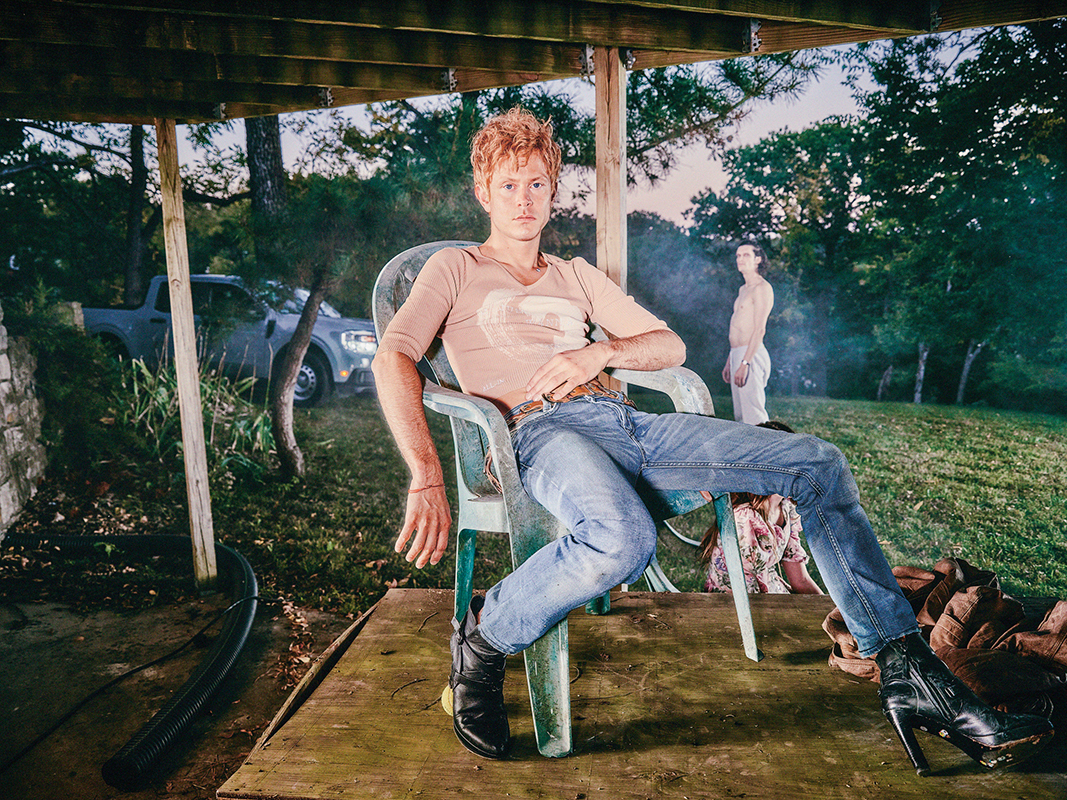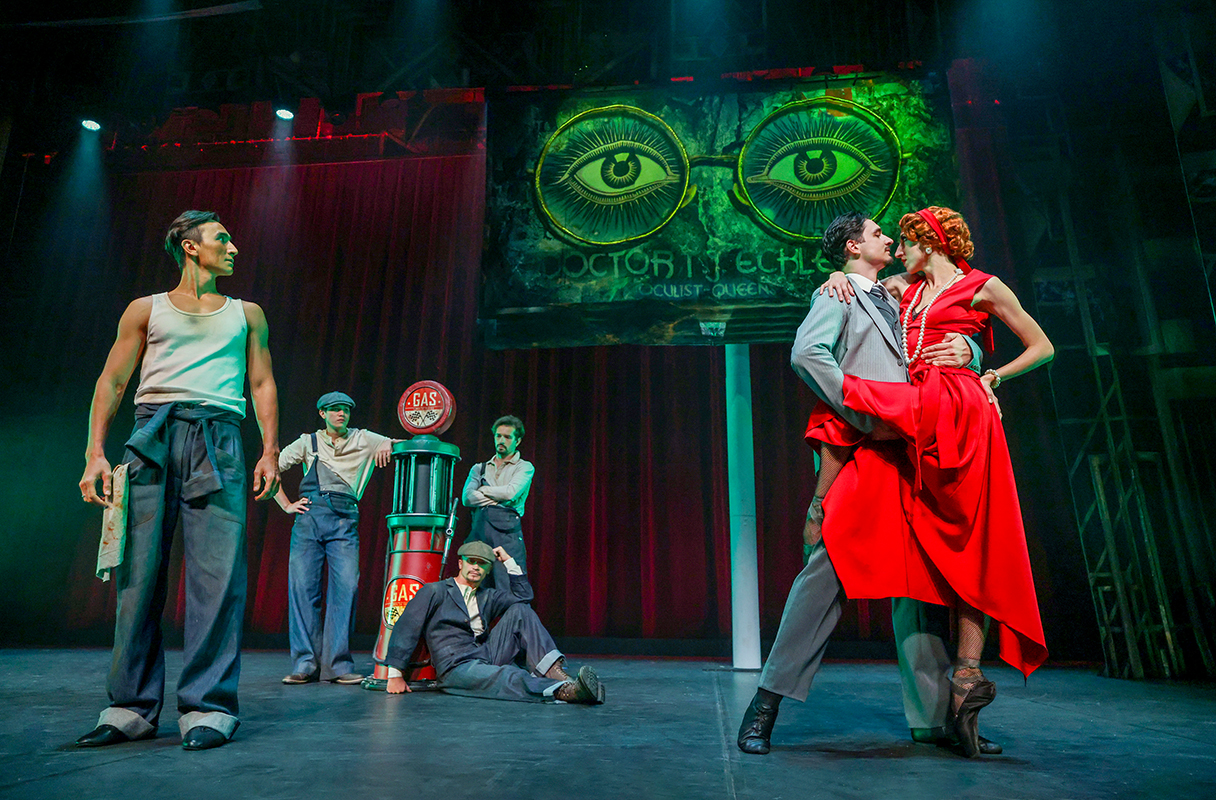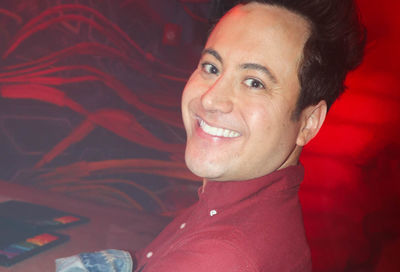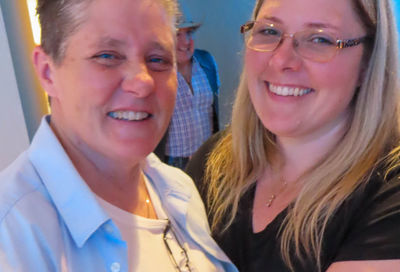Opera Star Michael Fabiano: “Carmen is a bully… She taunts Don José.”
Michael Fabiano, one of opera's most in-demand tenors, is making his Washington National Opera debut in "Carmen."

“I came out privately to my friends and my family when I was 21. But a large part of my industry did not allow me, or kind of rejected me, coming out for a long time,” says opera singer Michael Fabiano. “It seems a little odd to people. ‘You say the arts? What are you talking about? The arts must be one of the most gay-friendly verticals in the world.’ And in large part, that’s true.”
But the opera and classical worlds are more tradition-minded and conservative than other genres. All the more so for those singers who aspire to play leading roles.
“I’m a leading artist, who sings leading tenor roles, that are historically known as strong warrior-type men, or romantic men, that fall madly in love with one woman,” says Fabiano. “I would say there was a lot of resistance in the first five to ten years of my career to being openly gay, because of the kind of undercurrent of people resisting hiring me if they knew that I was not actually falling for women.”
Fortunately, that’s changed for Fabiano, and he suspects it has for others as well. That is, as long as they don’t forget their purpose, which is to act, and to play the part properly and convincingly.
“As much as one can be openly gay and live the way they want to live,” he says, “they still have to be willing to be those characters on stage fully in all ways — to own and live the role of whoever it is. If it’s a warrior, being a warrior. If it’s a romantic Romeo, it’s got to be that. I have that responsibility to the music, the librettist, and the public.”
These days, Fabiano, who recently turned 38, is one of opera’s most in-demand tenors, regularly cast in leading roles by the world’s most heralded companies, from New York’s Metropolitan Opera to London’s Royal Opera, Madrid’s Teatro Real to Milan’s La Scala, Houston Grand Opera to Germany’s Dresden Semperoper.
He’s preparing to make his Washington National Opera debut, playing the leading man in one of the world’s most popular operas, Bizet’s Carmen. Fabiano is Don José, the humble soldier who spurns everything and everyone else after becoming infatuated with the titular seductress, played by fellow opera superstar Isabel Leonard.

“In light of the way the world is right now, Carmen could seem taboo for some people and some sensibilities, as a man basically violently murders a woman at the end of the opera,” he says. “But we still today face huge problems with violence against women in our society, where men stalk women until they’re murdered. We can’t deny that this kind of thing still happens to this day.
“We also can’t deny that bullying still happens,” he continues. “Carmen is a bully. It is what it is. She taunts Don José. She’s fully aware that she taunts him, too. She pushes him so much to the edge that he becomes infatuated to the point of murder, which happens. If we don’t showcase that there can still be this kind of unrest between humans, we’re actually denying reality. The great thing about Carmen is that it’s an extremely real story.”
Carmen‘s appeal and continued relevance runs far deeper than that, though.
“There are so many incredible questions to ask inside of the opera Carmen. I think we get lost in a couple of fun songs and a little bit of dancing and a big duet. But there are life stories inside of this opera that, if played well, really tell a tale of what not to do and what to do in life.”
In recent years Fabiano helped launch the nonprofit ArtSmart, which offers free music lessons and mentoring to kids in under-resourced communities across the U.S.
“What I’m doing is not just teaching music,” he says. “I’m teaching kids life skills. I’m teaching kids how to prioritize, how to plan, how to goal-set, how to communicate with each other. So they’re more ready for the real world.” He does it all on a pro-bono basis, as a way to “give back to the community that has already given me so much.”
During a recent half-hour Zoom interview, Fabiano expressed concern about the state of America.
“People have lost the ability to relate to each other and share ideas and have differences of opinion [without wanting] to slit each other’s throats,” he says.
“One thing that’s great about opera: When we’re on stage and we’re performing for the public, opera becomes one of the greatest democratic institutions in the world. Because people can either agree or disagree, like or not like what’s going on on stage, but they don’t leave the theater in complete civil discord and unrest. They end up talking with each other about why they like the voice or why they didn’t like the voice, why they like the show, or why they didn’t.
“And it’s that kind of discourse that is open, that doesn’t lead to animus. And what we need to refine in our politics and in our daily life is where we can talk as colleagues, as allies, as friends, and still disagree, and still break bread together and sit across the table from each other.”
The Washington National Opera’s Carmen runs to Saturday, May 28 in the Kennedy Center Opera House.
Tickets are $25 to $299. Call 202-467-4700 or visit www.kennedy-center.org/wno.
Support Metro Weekly’s Journalism
These are challenging times for news organizations. And yet it’s crucial we stay active and provide vital resources and information to both our local readers and the world. So won’t you please take a moment and consider supporting Metro Weekly with a membership? For as little as $5 a month, you can help ensure Metro Weekly magazine and MetroWeekly.com remain free, viable resources as we provide the best, most diverse, culturally-resonant LGBTQ coverage in both the D.C. region and around the world. Memberships come with exclusive perks and discounts, your own personal digital delivery of each week’s magazine (and an archive), access to our Member's Lounge when it launches this fall, and exclusive members-only items like Metro Weekly Membership Mugs and Tote Bags! Check out all our membership levels here and please join us today!


























You must be logged in to post a comment.